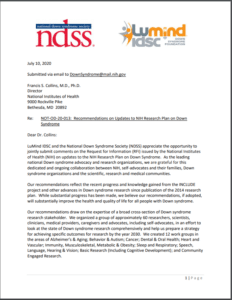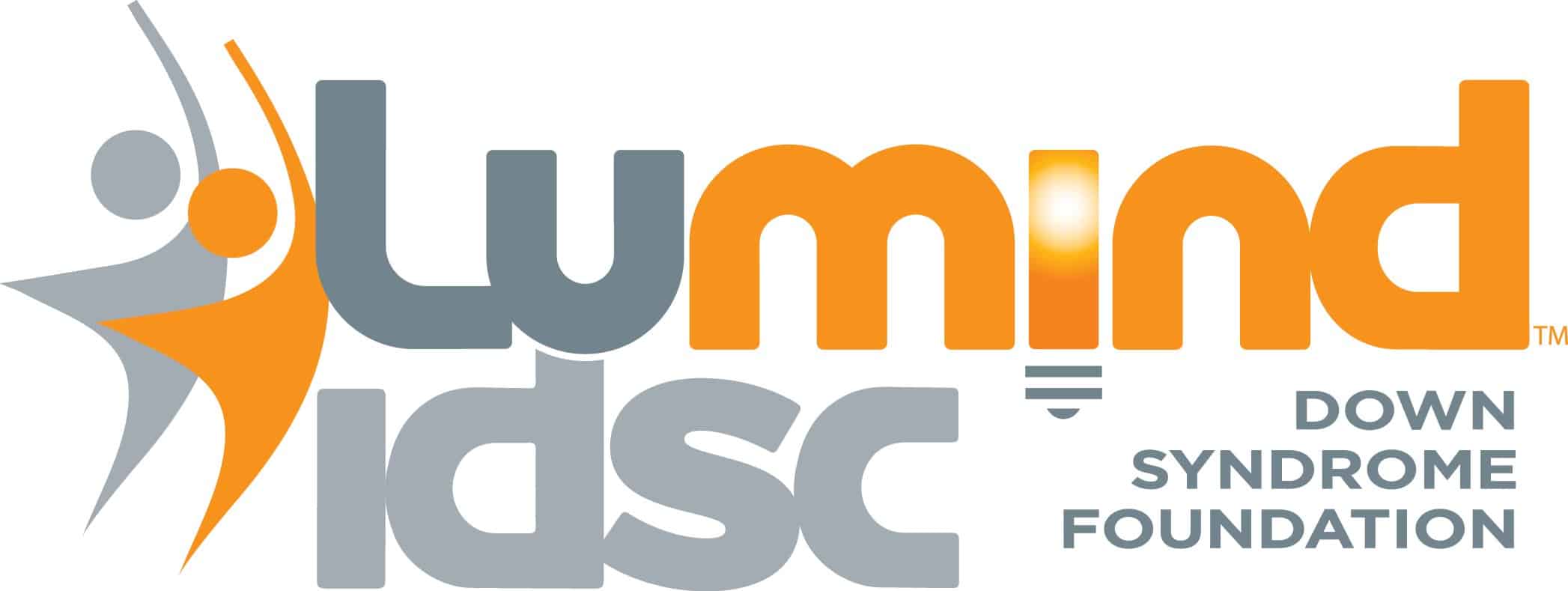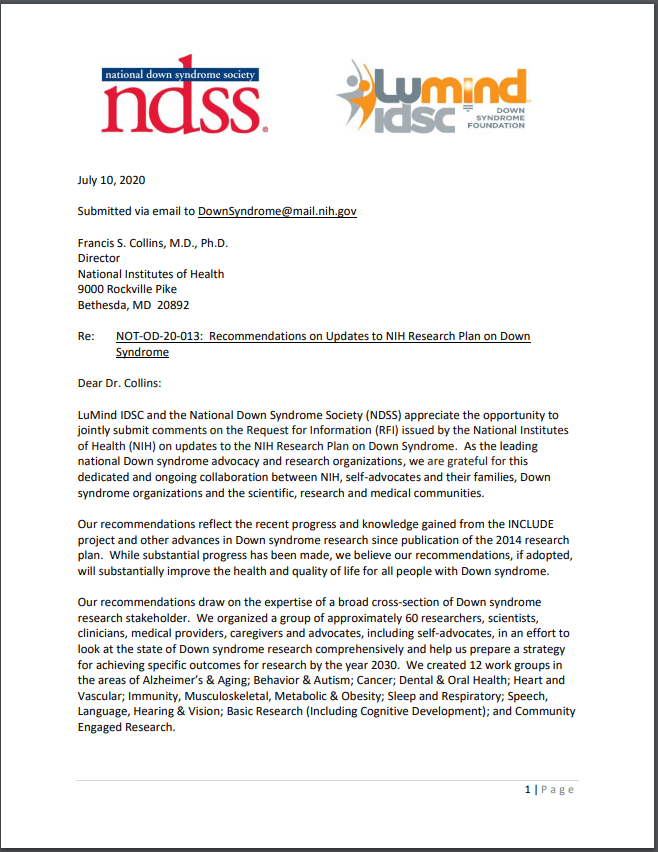Boston, MA and New York, NY (July 14, 2020) – The LuMind IDSC Foundation and the National Down Syndrome Society (NDSS), the leading national Down syndrome research and advocacy organizations, submitted to the National Institutes of Health (NIH) a comprehensive plan for advancing medical research that will dramatically improve the health and well-being of individuals with Down syndrome by the end of the decade.
 The 41-page research blueprint responds to a Request for Information (RFI) on updating the NIH Research Plan on Down Syndrome, which was last updated in 2014. An update of the research plan is needed to take advantage of recent achievements in Down syndrome research, including new understandings gained from the INCLUDE (INvestigation of Co-occurring conditions across the Lifespan to Understand Down syndromE) project, a trans-NIH initiative launched in June 2018 to address critical health and quality-of-life needs for individuals with Down syndrome.
The 41-page research blueprint responds to a Request for Information (RFI) on updating the NIH Research Plan on Down Syndrome, which was last updated in 2014. An update of the research plan is needed to take advantage of recent achievements in Down syndrome research, including new understandings gained from the INCLUDE (INvestigation of Co-occurring conditions across the Lifespan to Understand Down syndromE) project, a trans-NIH initiative launched in June 2018 to address critical health and quality-of-life needs for individuals with Down syndrome.
“We are grateful to NIH for their partnership in helping to bring the Down syndrome community together around focused and achievable research objectives,” said NDSS President and CEO Kandi Pickard. “Thanks to their support and leadership, the research needs of our loved ones with Down syndrome are beginning to receive the attention they deserve.”
The joint LuMind IDSC-NDSS submission details priorities in five major areas for understanding the general biology of Down syndrome, which include the pathophysiology of Down syndrome; screening, diagnosis and functional measures; treatment and management; aging; and research infrastructure.
“The recommendations outline investments in Down syndrome research that are grounded in current scientific thinking and informed by a broad multi-disciplinary group of researchers and clinicians,” said LuMind IDSC President and CEO Hampus Hillerstrom, “More importantly, they have the potential to advance the treatments and interventions that significantly improve the medical care and quality of life of children and adults with Down syndrome.”
The submission also includes detailed priorities for addressing associated medical conditions related to Down syndrome, including Alzheimer’s and aging; behavior and autism; cancer; cognitive development and independence; dental and oral health; heart and vascular; immunity; musculoskeletal, metabolic and obesity; sleep and respiratory; and speech, language, hearing and vision. Further, it includes community engagement feedback and recommendations from individuals with Down syndrome, caregivers and leaders from local and national Down syndrome organizations.
“We are grateful to the more than 50 researchers, scientists, clinicians, medical providers, caregivers, advocates (including self-advocates), and local, national and international representatives from Down syndrome organizations for their time and expertise to help us prepare a comprehensive strategy to achieve specific outcomes for Down syndrome research by the year 2030,” the two organizations’ leaders wrote in their submission.
The groups said they plan to continue their collaboration by submitting for publication later in 2020 a review article on recent advances, remaining gaps, and research recommendations for Down syndrome, and by engaging policymakers in understanding the social and medical benefits of a comprehensive national Down syndrome research strategy.
#####
About the LuMind IDSC Foundation
The LuMind IDSC Foundation (LuMind IDSC) is a nonprofit organization that accelerates research to increase availability of therapeutic, diagnostic, and medical care options and empowers the largest online community of individuals with Down syndrome and their families with education, resources, connections, and support. Since 2004, LuMind IDSC raised a total of $85M in funding for Down syndrome research to prevent Alzheimer’s onset, improve cognition, develop gene therapies, and advance understanding. Visit www.LuMindIDSC.org to learn more or get involved.
About the National Down Syndrome Society
The National Down Syndrome Society (NDSS) is the leading human rights organization for all individuals with Down syndrome, and the largest nonprofit in the U.S. dedicated to advocating for individuals with Down syndrome and their families. NDSS programming includes the National Advocacy & Policy Center, which seeks to create systemic change through engaged advocacy; the National Buddy Walk® program, which honors and celebrates individuals with Down syndrome in local communities across the world, and a number of programs that provide support, informational resources, and community engagement opportunities for individuals with Down syndrome and those who love and support for them. Visit www.ndss.org for more information about NDSS programs and resources.
LuMind IDSC Foundation
[email protected]
(781) 825-1303
National Down Syndrome Society
[email protected]
(301) 801-0552


